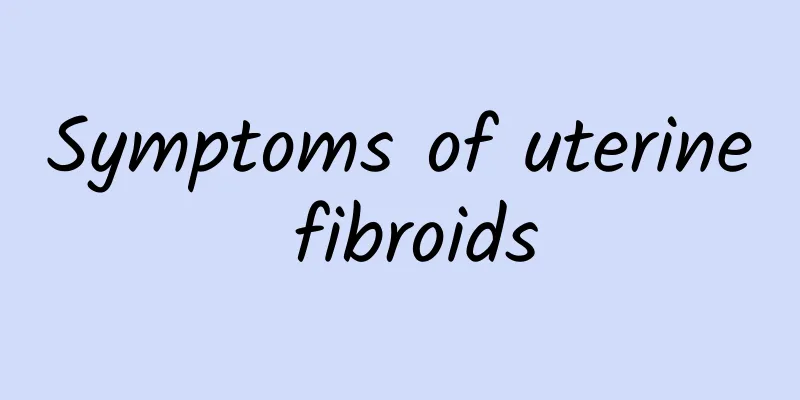Pay attention to the symptoms of acute pelvic inflammatory disease after gynecological surgery

|
If you experience the following symptoms similar to acute pelvic inflammatory disease after gynecological surgery, you should pay special attention. As a common gynecological disease, acute pelvic inflammatory disease is extremely harmful to patients, their families, and fetuses. It is very necessary to understand some symptoms of acute pelvic inflammatory disease and to detect and seek medical treatment in time. Patients with acute pelvic inflammatory disease may have undergone total hysterectomy, surgical delivery, childbirth, artificial abortion, etc. before the onset of the disease. Generally, the symptoms of acute pelvic inflammatory disease appear within 1 week to half a month after infection. The initial symptoms of acute pelvic inflammatory disease include fever, chills, persistent lower abdominal pain, severe pain, and even more pain when touched, accompanied by soreness and heaviness in the waist. After the onset of the disease, the patient will have a persistent high fever, accompanied by chills. When the inflammation spreads to the pelvic cavity and peritoneum, the pain may radiate to the buttocks and thighs. Gynecological examination can reveal edema of the tissues around the uterus, especially the tissues in front of the uterus, which are severely thickened and tender, with limited movement, lower abdominal pressure, rebound pain and abdominal muscle tension. If the patient's illness started after a total hysterectomy, symptoms of acute pelvic inflammatory disease such as purulent or bloody exudate at the vaginal stump and infection around the vagina can be found. If an abscess has formed, a mass can be felt on the side and back of the uterus, with tenderness. Routine blood test: white blood cells and neutrophils increased significantly; erythrocyte sedimentation rate increased The pain of patients during acute pelvic inflammatory disease is indescribable. If the disease is not treated for a long time, it will develop into chronic pelvic inflammatory disease and other complications, which are killers of human health. It is recommended that you consult after gynecological surgery to understand some symptoms of acute pelvic inflammatory disease and take early prevention. |
<<: How much do you know about the causes of chronic pelvic inflammatory disease?
>>: The main diagnostic basis for chronic pelvic inflammatory disease
Recommend
Will cervicitis delay menstruation? How can women prevent cervicitis?
Cervicitis is one of the common gynecological inf...
What are the symptoms of cervical erosion?
If you want to cure cervical erosion better, you ...
What should I pay attention to when I have vaginitis?
Female vaginitis is a common gynecological diseas...
Dietary therapy for auxiliary treatment of cervical erosion
If cervical erosion is not treated in time or is ...
Diagnosis of irregular menstruation: Women have irregular menstruation
Once a woman is under too much stress or has an i...
How to treat uterine fibroids How to treat uterine fibroids
Uterine fibroids are the most common type of tumo...
Is medical abortion expensive?
Medical abortion is becoming more and more popula...
What can you eat to abort a child? What are the dangers of aborting a child for women?
If a female friend wants to abort the child by ea...
Prevention of pelvic inflammatory disease starts with yourself
Should the prevention of pelvic inflammatory dise...
The calories from eating 4 glutinous rice balls during the winter solstice equals 1 bowl of rice! Nutritionist: Master these three tips to avoid eating fat and reduce the burden on your stomach and intestines
This Friday, December 22nd, is the Winter Solstic...
Choosing the most appropriate treatment for cervical hypertrophy
There are many treatments for cervical hypertroph...
Several common treatments for cervical erosion
Cervical erosion is a gynecological disease that ...
Do you know the causes of dysmenorrhea?
Dysmenorrhea is a problem that many women will en...
Is dysmenorrhea related to prostate hormones?
Dysmenorrhea is closely related to prostate hormo...
How to check pelvic inflammatory disease more accurately
How to check pelvic inflammatory disease more acc...









